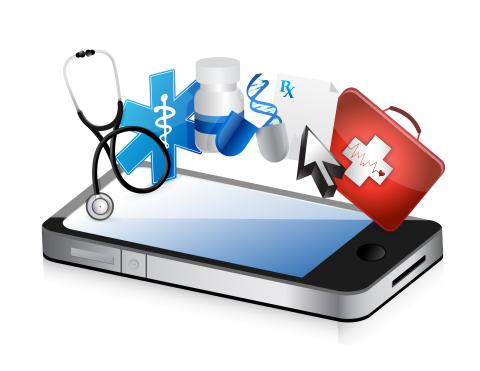Updates from the Director
Michele Countryman, HSO Director
The University of Iowa Human Research Protection Program was the first academic institution to be awarded accreditation status with the Association for the Accreditation of Human Research Protection Programs (AAHRPP) in 2003. We are used to setting high standards in the oversight of human subjects research. I want to take a minute to recognize contributions by our primary IRB Chair, Dr. John (Andy) Bertolatus, that have gone above and beyond our institutional efforts for the protection of human subjects.
In 2013, AAHRPP developed a program to formally recognize individuals who play a key role in assisting AAHRPP to achieve its mission of promoting excellent, ethically sound research. AAHRPP does this through the accreditation process which sets high standards not only in the protection of human subjects research but the entire institutional research portfolio. All of this work cannot be done without dedication in the field. In support of these efforts, AAHRPP implemented a process to formally acknowledge those that make significant contributions to the AAHRPP mission and vision, called the Friends of AAHRPP award.
Andy Bertolatus has been an integral part of the University of Iowa Human Research Protection Program. He has served as an IRB member since 1998 and an IRB Chair since 2000. It was no surprise to me when this past April, AAHRPP also recognized his contributions as the “crème de la crème” amongst his peers by honoring him with the Friends of AAHRPP award. He has played a significant role with AAHRPP in maintaining these high expectations. Since 2005, Andy has served in various capacities as an AAHRPP council member, onsite accreditation team lead during accreditation visits and a Step 1 AAHRPP application reviewer. According to AAHRP, Andy brings enthusiasm and knowledge to his many roles, helping to ensure that both the site visit team and the evaluated organization benefit from a positive accreditation experience. Congratulations Andy! This is a well-deserved recognition.
Photo: Elyse Summers, JD, AAHRPP President and CEO presenting the Friends of AAHRPP award to Andy Bertolatus, MD, University of Iowa primary IRB Chair
Barriers to Informed Consent: Health Literacy and Therapeutic Misconception


Brent Collinsworth
When is consent truly informed? Whether a participant truly understands a study and its procedures, risks and benefits can be affected by many different issues. Health literacy and therapeutic misconception specifically are two factors that can substantially limit a potential subjects’ ability to fully participate in the informed consent process.
Health Literacy
The National Library of Medicine defines health literacy as “how well a person can get the health information and services they need, and how well they can understand them.” It is the latter part of this definition that applies to human subjects research; especially biomedical research.
Low health literacy affects over 90 million individuals in the US alone, and is more common in individuals who have less than a high school diploma, who are recent immigrants, and who are over the age of 65. However, it is important to note that health literacy can be dynamic and affected by many factors in one’s life. For instance, a participant under extreme stress due to a recent cancer diagnosis may have more difficulty with comprehending an informed consent document than the average participant.
Health literacy can have major real-world consequences, as people with low health literacy may not able to understand scientific terminology, technical language or even basic mathematic concepts like fractions and percentages. It is important to note that health literacy and functional literacy are not the same. Individuals who have difficulty reading (low literacy) often have difficulties understanding technical information about medical procedures (low health literacy). But even people who are highly educated and very literate can have difficulty understanding health information, especially during stressful situations or circumstances such as shortly after diagnosis with a serious health issue. Regardless of the circumstances or the nature of the research, it’s essential to present information about research studies in a manner that all potential subjects can understand, including people with limited health literacy.
Therapeutic Misconception
Therapeutic misconception is defined by the National Bioethics Advisory Commission as “the belief that the purpose of a clinical trial is to benefit the individual patient rather than to gather data for the purpose of contributing to scientific knowledge.” Of course, there are plenty of research participants that benefit from participation in a research study. But this is not the main goal of research. Participants should understand this before participating in research, otherwise they may not be properly informed enough to give informed consent.
Therapeutic misconception often makes its presence felt in three specific areas of the consent process. (1) Participants can often overestimate the possibility of benefits of participation in a research study. This is a very common mistake. A study about research attitudes of participants in a clinical trial found that about half of the recent study participants had unrealistic beliefs about the nature or likelihood of benefits of their participation, such as the study being designed to benefit them. (2) Participants can misunderstand the concept of random assignment and mistakenly believe that study treatment assignment is based on who may benefit the most, or based on their expressed preference for a particular treatment group. (3) Participants may underappreciate the level of risk involved in a research study, especially as it relates to the group assignment. If they are focused on getting assigned to a particular treatment group, they may not pay attention to the risks and benefits from all possible arms of the study.
Improving the Consent Document and Process
There are some simple and commonsense solutions to address both of these issues in the consent document and the process for obtaining informed consent.
- First, choose common words known by the lay audience to replace research terms that might be less familiar to participants. Terms like “placebo” and “clinical trial” may be often used in research circles, but participants with lower health literacy may not be familiar with those terms, and therapeutic misconception can flourish due to these misunderstandings about research jargon. This also includes explaining research procedures and purposes.
- Clearly stating the purpose of research gives researchers the chance to identify and address misunderstandings about the nature and purpose of the study.
- Additionally, how researchers present the material can be just as important as what is presented. This can include giving participants more than enough time to read over consent documents, discussing information with participants verbally and asking questions to confirm that they have understood the material, and being on the lookout for any possible signs of a lack of understanding during the consent process.
- Lastly, direct discussion with participants about the likelihood of benefits (or the lack thereof) is an effective way to undercut beliefs rooted in therapeutic misconception. Most researchers know that clinical trials can often have very little to no prospect for benefits to individual subjects (especially in the early stages). But participants should not be expected to make that conclusion. If there still seem to be some gaps in understanding, researchers should ask questions and clear up any misunderstandings before the subject signs the Informed Consent Document.
Addressing issues related to health literacy and therapeutic misconception can lead to a more informed subject pool and a more ethically sound consent process. Proactively addressing these potential problems is good for the researcher and the participant!
To Top
Using Mobile Technologies to Address Barriers to Participation in Clinical Trials


Patricia Katopol, PhD
Finding enough subjects for a biomedical clinical trial can be difficult under the best of circumstances, so it is understandable that researchers may focus primarily on a subject’s health status and study eligibility criteria. But there are other characteristics, such as income level and geographic distance from the research site, which can greatly affect a potential subjects’ ability to go through the screening process or enroll in a study. Especially in a rural environment like Iowa, these factors can have significant influence on whether a person is able to participate in a trial.
There are a number of reasons why low income people may not choose to be part of a trial. First, income alone seems to be a significant barrier. A recent study published in JAMA Oncology Online First found that those with an annual household income below $50,000 were 32 percent less likely to enroll in a clinical trial and those with an annual household income below $20,000 were 75 percent less likely to participate.
Other income-related barriers include the need to take time from work, the costs of child care and transportation, and out-of-pocket medical costs such as insurance copays. Many trials state that medical issues caused by the trial will not be handled by the study, but by the subject’s own insurance. For those covered under the Patient Protection and Affordable Care Act, (also known as ‘Obamacare’), routine costs from clinical trials will be covered but subjects may not be aware of this benefit. Participation may also be difficult for people in jobs without benefits such as paid sick leave or short or long term disability.
According to a December 2014 Reuters article, clinical trials are the basis for most advances in treatments for cancer and can provide novel treatments that are not yet available to the general public. These advances and treatments should be available to everyone, not only those with incomes and employment benefits that cover the incidental costs of a clinical trial. Researchers may be familiar with the Belmont Report, which has ‘justice’ as a basic ethical principle. The principle of justice focuses on subject selection and not using availability, compromised position, or manipulability as the basis for selection. By extension, this principle may also apply to decisions about who not to select, so that failure to include people with a particular status may mean that their stories, their uniqueness, fail to become part of scientific advancement.
Distance from the site can also hinder participation, especially if the subject lives in a rural area. Research in JAMA Internal Medicine indicates that at least half of patients with prostate and colorectal cancer, as well as at least 38% of patients with metastatic breast and non-small cell lung cancer would have to drive 60 minutes each way to reach an academic medial institution conducting clinical trial. In addition, more than 35 percent of those with breast and non-small cell lung cancer would have to drive over an hour.
Patients may have other travel-related problems that are not mentioned in the study, such as simply obtaining transportation if they are too sick to drive or do not have someone who can regularly drive long distances and spend the time away from work or family while waiting for the patient to receive treatment. In a rural state such as Iowa, the burden of travel on subjects should be considered in the design of every study that seeks to recruit from across the state.
To reduce issues of income and geographic distance as barriers to participation, researchers may want to consider using smartphone apps and mobile information technologies to keep in touch with subjects and to encourage them to be active participants in the study and in their own health care. Smartphone penetration in the US is now at 75 percent, indicating that even those with lower incomes may well have access to such a device.
Apple’s ResearchKit uses the iPhone to provide a platform for a number of studies from Asthma to Parkinson’s disease. For example, GlucoSuccess, from the Center for Assessment Technology and Continuous Health at the Massachusetts General Hospital, helps people manage their Type 2 diabetes. Participants upload information about their activities, diet, and medication. This provides participants and researchers with information about the relationship between these behaviors and blood glucose levels, with the goal of better diabetes management.
Information on FOCUS from Dartmouth’s Center for Technology and Behavioral Health, was presented in a session on mobile health at the 2015 Public Responsibility in Medicine and Research (PRIM&R) Conference on Advancing Ethical Research. This study uses mobile technology to help patients manage their mental health symptoms by providing feedback and exercises. Dartmouth researchers found that 72 percent of persons with severe mental illness had a smart phone. As funding cuts reduce access to mental health care providers, which can be especially problematic for low income and rurally situated patients, mobile technologies may help them manage their illness and avoid emergency room or hospitalization costs.
In designing a clinical trial, investigators should consider how to overcome barriers to participation. Should transportation be provided to the trial location? Should paid overnight stays in a nearby hotel be available? Should a non-coercive level of payment or reimbursement be offered? Designing the trial to include the use of mobile technologies which allow participation from the subject’s location, reducing travel and participation costs, should also be a consideration.
There are benefits to society from increasing the number of subjects in a clinical trial by designing trials that recognize barriers to participation not only benefits the investigator and the study. Trials with more subjects may be conducted more quickly. Generalizable knowledge may be increased as more information is obtained from more diverse participants. Individuals will also benefit as trials are designed that address the complexity of being human.
To Top
IRB-04 Department of Defense: Announcing the UI’s Newest IRB


Laura Dallas
The Human Subjects Office is making some changes that will allow the UI IRB to review research funded by any component of the Department of Defense.
If you conduct research funded by the Department of Defense, you may be aware that any research funded by the Department of Defense, Department of Navy (DoN), had to be sent to WIRB or a commercial IRB for review. This is because the Department of Navy requires compliance with additional federal requirements, instructions and directives. This includes, among other things, additional training of the IRB members who review DoN research, training that the University of Iowa IRB had been unable to implement with our members on the three existing IRBs.
We are overcoming this hurdle now by implementing an additional IRB, IRB-04, with members who will be fully trained to satisfy all DoD/DoN requirements. IRB 04 can review any component of the Department of Defense, including Department of Navy. In addition, the Human Subjects Office created new policies and instructions for submissions to IRB04. And there are new HawkIRB questions to capture the information needed for the IRB to make determinations related to Department of Defense research.
An upcoming IRB presentation about the new IRB-04 will provide an overview of all of these changes.
Date: Monday, May 9
Time: 12:30-1:30 pm
Location: Ziffren Auditorium 1502 Colloton Pavilion, University Hospital
Pre-registration is recommended. Follow this link to register: https://uiowa.qualtrics.com/SE/?SID=SV_3JlRS3e8LcZai9L
The IRB Advisor Newsletter, May 2016
IRB Advisor is a monthly newsletter that contains articles about regulatory issues, informed consent, current events in human subjects protections as well as articles about IRB administrative and management issues. The UI IRB subscribes to this publication as a resource for UI faculty, staff and student researchers as well as for IRB members and Human Subjects Office staff. Each month the IRB Connection Newsletter features an article from the current issue of IRB Advisor.
The featured article from the May issue is: ‘Optimistic bias’ may subvert informed consent in early-phase cancer trials
At what point does optimism end and misperception begin? Researchers have found that the uncertainty between the two can lead to some questions about whether informed consent was truly given.
Early-phase cancer trials, where treatments are very likely not to be beneficial to the participants, can be a setting where research subjects can fall victim to so-called “optimistic bias,”
seriously overestimating the potential benefits their participation may yield. Researchers have found that participants who express that they have a higher degree of control over the outcomes
of the trial are also the most vulnerable to optimistic bias. Additionally, the desire for control over their disease may also make people more likely to participate in early-phase trials in the first place.
In order to properly counter optimistic bias, researchers and IRBs may need to be more aware of psychological traits that may make people more prone to overestimate benefits.
Additionally, researchers and IRBs may need to look into proactive interventions to ensure that subjects have fully comprehended how likely they are to benefit from participation in an early-phase trial. (Read more here)
The May issue also includes articles about:
- Fallout from conflicts of interest in Maryland
- IRB collaborations
- The AMA joining the AllTrials Initiative
- Ethics tool kit to improve ethical discussion in protocols
- Improving socio-behavioral protocol review
Current and Past Issues
There is a link to current and past issues of IRB Advisor on the Education and Training page of the Human Subjects Office web site. This link provides automatic access to the newsletter from all computers with a University of Iowa IP address.
The University of Iowa username and password cannot be posted on the Human Subjects Office web site. UI researchers may contact the Human Subjects Office to request the username and password to access IRB Advisor from a personal computer. Contact us by e-mail (irb-outreach@uiowa.edu) or call us at 319-335-6564.
Continuing Education Credits
Individual newsletter subscribers can receive 1.5 AMA PRA Category 1 Credits™ or 1.5 nursing contact hours for reading an issue and completing an online test. However, since this is an institution-level subscription, UI researchers must purchase access to an individual issue for $40, or purchase a full subscription, to receive CME/CE credits. Visit the AHC Media web site for information about subscription options.



